Diana Crawshaw – who designed for such boutiques as Mr Freedom and Paradise Garage – has contacted me about an appearance she made in an early pop promo clip: Piers Bedford’s short for the 1968 single Long Haired Boy by American singer-songwriter Tim Rose.
“There’s so much pollution in the world you should use the gear you already have, not buy something because it’s fashionable” – Trevor Myles + Paradise Garage in Jackie magazine December 1971
Well done to vintage collector/dealer Sharon of Sweet Jane’s Pop Boutique blog for spotting this wowser on a Facebook group: a 1971 article in teen fashion and music magazine Jackie about the game-changing fashion outlet Paradise Garage run by Trevor Myles at 430 King’s Road.
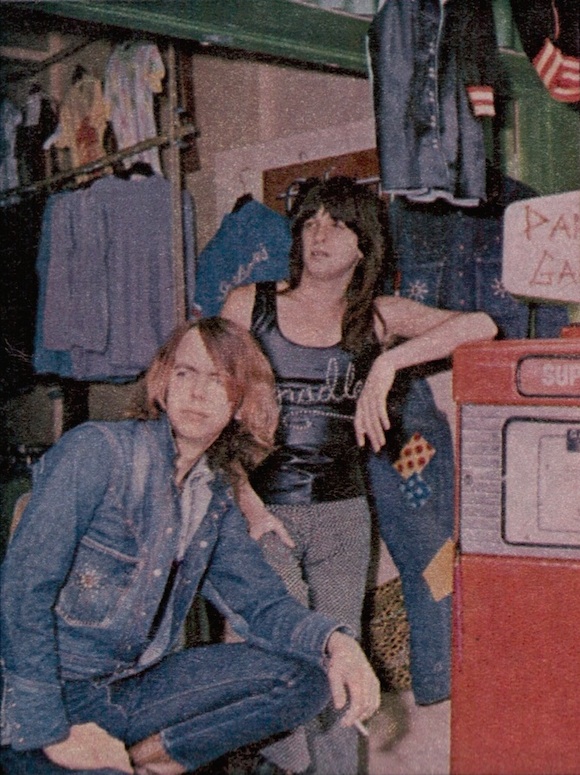
//Myles with Bradley Mendelson (in ‘Bradley’ studded top) outside Paradise Garage. Photographer uncredited//
Paradise Garage is important because it was the first shop in Britain to import and sell used denim in a meaningful way. Using the astounding environment created by Electric Colour Company, faded and worn denim, sometimes appliqued or patched, was stocked alongside an acutely compiled selection of soon-to-be-familiar dead-stock: Hawaiian shirts, baseball and souvenir jackets, Osh Kosh B’Gosh dungarees, bumper boots, cheongsams and so on.
Myles opened Paradise Garage in May 1971 as a reaction to the Pop Art flash he had engineered at Mr Freedom with his ex-partner Tommy Roberts. In the Jackie article he makes a point about fashion and environmental sustainability of pertinence today:
“There’s so much pollution in the world that we thought you should use the gear you already have – not buy something just because it’s fashionable. By throwing the old lot away you only add to the pollution problem. So that’s why we’re using it all up.”
Also interviewed and photographed is shop manager Bradley Mendelson, the New Yorker whose November 1971 encounter with Malcolm McLaren while Myles was absent overseas resulted in the establishment of Let It Rock at the same address.
The publication date of the issue of Jackie – December 4, 1971 – is poignant; by the time the feature appeared Paradise Garage was gone and McLaren and others, including his art-school student friend Patrick Casey and Vivienne Westwood, had taken over the outlet and were refurbishing it to match Mclaren’s radical British take on 50s retromania.

//Mr Freedom designs produced under Myles’ former partner Tommy Roberts appeared elsewhere in the same issue. Here customer Elton John sports an appliqued top//

//The female cover model wore a pair of green and white winged boots from Mr Freedom (detail cropped out)//
Read the Sweet Jane’s Pop Boutique blog here.
Electric Colour Company: Blueberry Hill – London’s shortest-lived boutique – and the customised Ford Fairlane 500
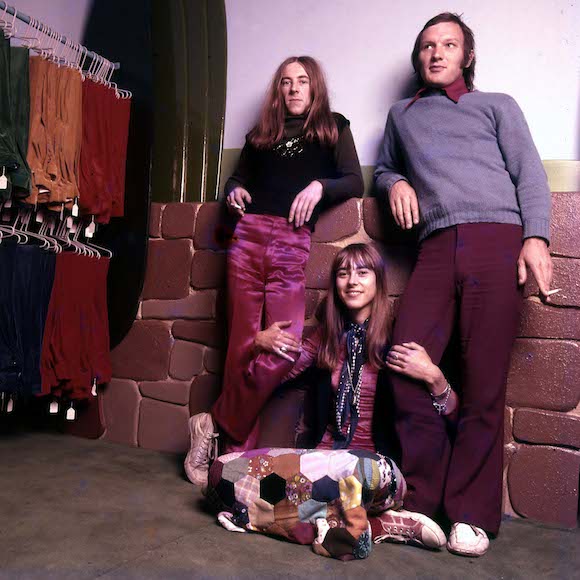
//Electric Colour Company’s Roderic Stokes and David Smith with Carol Davey at Blueberry Hill, 91 King’s Road, London, 1970//
Here are a couple of images relating to late 60s/early 70s British design studio Electric Colour Company; I’m writing a magazine feature about their exceptional body of work which ran from signage, custom-built furniture and shop designs (notably Mr Freedom, Paradise Garage and City Lights Studio) to lighting modules, display objects, interior decoration, murals, custom cars and fashion accessories.
In November 1970 the King’s Road boutique Blueberry Hill was launched with a comprehensive fit-out – reported at a substantial-for-those-days £3,000 – by the ECC team of Andrew Greaves, Jeffrey Pine, David Smith and Roderic Stokes.

//By the time this coverage appeared in the February 1971 issue of Design magazine, Blueberry Hill had been closed for several weeks//
Despite the extraordinary nature of the shop design – which included cloud-form light fittings in neon strip and a timber counter with spray-on brickwork finish resembling a well-head – Blueberry Hill closed after just six weeks when the landlords opted to replace it with a more bankable betting shop.
The other photograph shows ECC fellow travellers Dinah Adams – who designed clothes for Mr Freedom, Paradise Garage and Granny Takes A Trip – and Irene Smith with the customised Ford Fairlane which also appeared in the East End company’s advertising.
I’ll give the nod when my piece on Electric Colour Company is nearing publication.
Visit the ECC site here.
Thanks to Andrew Greaves for the photographs.
Unbelievable rarity: Undocumented Let It Rock clothing featured on 1972 budget LP + previously unpublished views of stock inside 430 King’s Road
It is relatively common knowledge among those interested in the careers of Malcolm McLaren and Vivienne Westwood and their series of extraordinary shops that they supplied clothes to the 1973 album Golden Hour Of Rock & Roll; Let It Rock at 430 King’s Road was clearly credited on the back of the record sleeve.
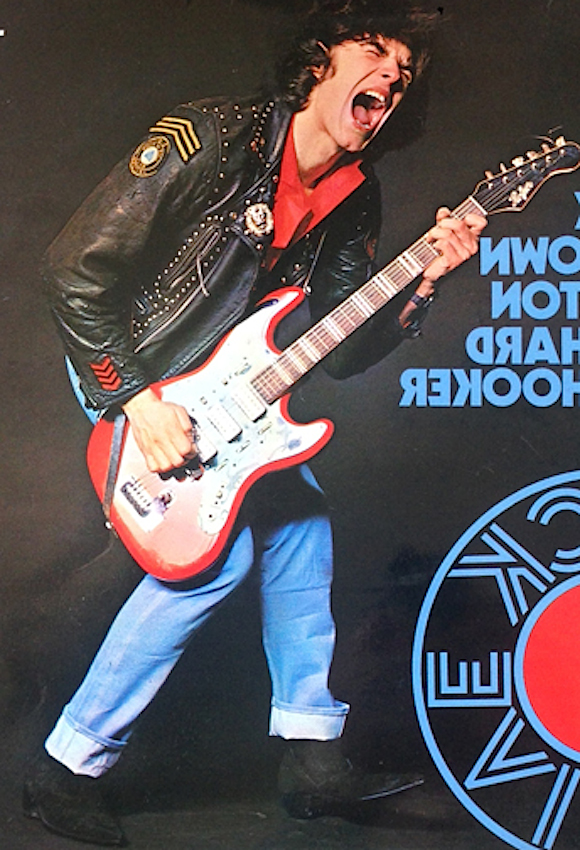
//The photograph on the Rock Archive cover was flipped to better accommodate the text. Here it is as originally shot//
But I have fresh information which helps towards a greater understanding of McLaren’s project to investigate the detritus of popular culture’s recent past. During a bout of research recently I came across this earlier and hitherto undocumented use of Let It Rock clothing in a music context: the front cover of Rock Archive, a budget LP compilation released by the specialist British independent label Windmill in 1972.
And I am detailing the clothes on the cover with images taken inside Let It Rock which have never been previously published.
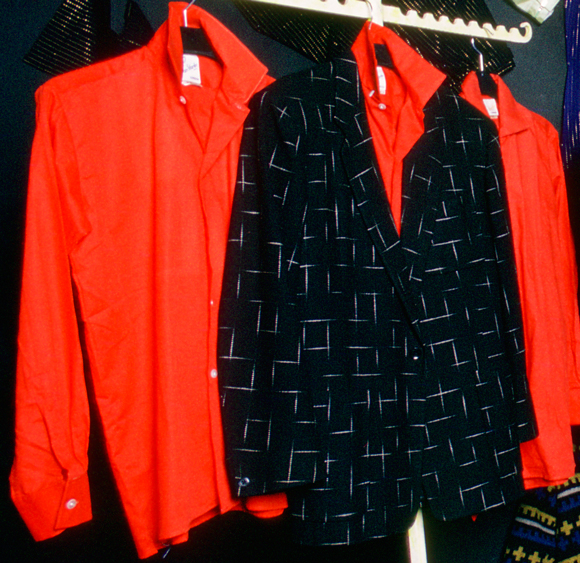
//Starke shirts with 50s sports jacket on Let It Rock wall, January 1972. Photograph: David Parkinson//
Each garment worn by the model – whose attempts at rocking out resulted in his giving every appearance of suffering considerable pain – comes from the deadstock of British brands assiduously assembled by Malcolm McLaren and his art-school friend Patrick Casey for the opening of the world’s first avowedly post-modern retail outlet in November 1971.
From the ground up, the Rock Archive cover star wore black suede Denson’s Fine Poynts, ice-blue Lybro jeans with 5in cuffs, a Frederick Starke flyaway collar shirt and a studded and decorated Lewis Leathers early 60s Lightning jacket (which featured a highly collectable 6-5 Special patch).
Photography: David Parkinson shoots Acme Attractions
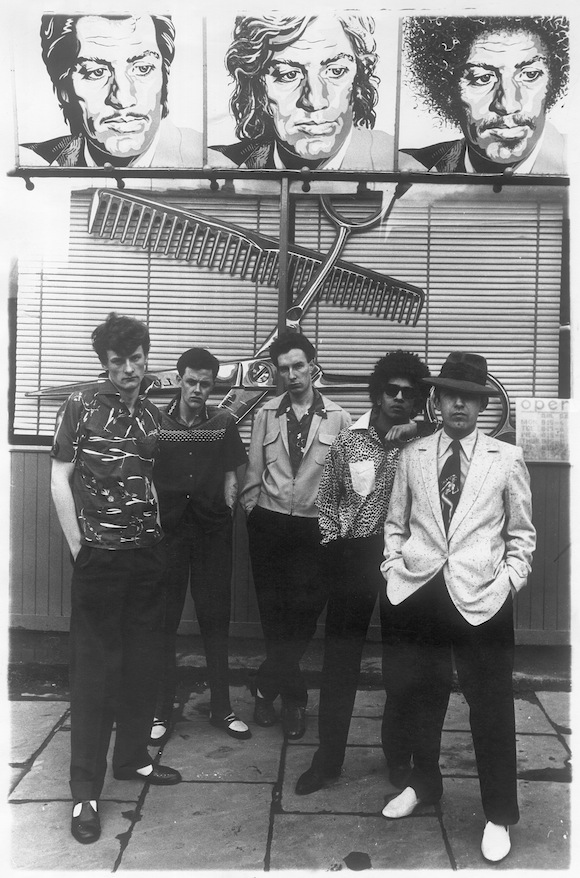
//Original print of photo for Club International, 1975. Models include, from far right, Stephan Raynor, Don Letts and Martin Brading. Photo: David Parkinson//
I’ve been enjoying researching materials relating to the late photographer David Parkinson for a feature for GQ magazine, so thought I’d share some of the images I dug out of the Parkinson archive concerning the 70s King’s Road retro clothing store Acme Attractions.
Parkinson’s position as fashion editor of Paul Raymond’s sophisticated soft-porn magazine Club International enabled him to style and present Acme clothing for a wide readership, on occasion using the shop team as models.
Acme was opened by Parkinson’s friend Stephan Raynor (they’d known each other since they were part of a gang of style-obsessed teenagers in Leicester in the early 60s) with John Krivine, previously a Brixton-based jukebox dealer, in 1974.
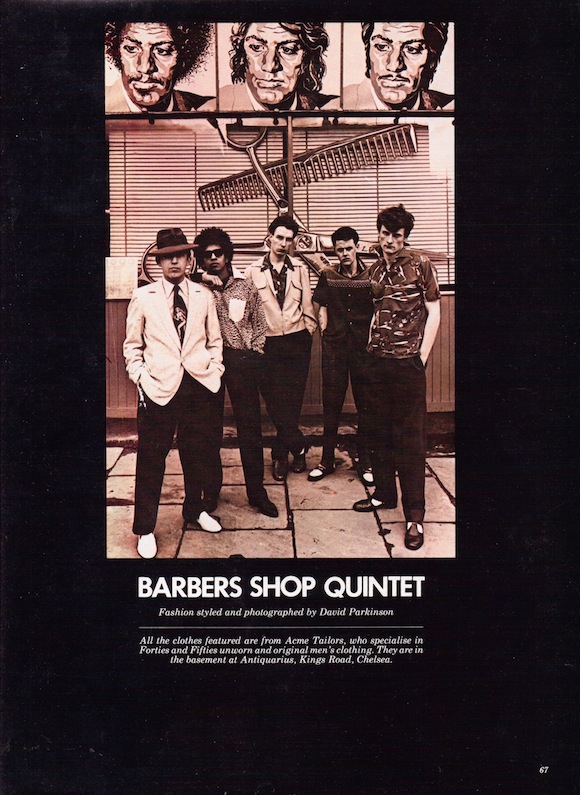
//As the Parkinson photograph appeared in the magazine, flipped and tinted. Note ref to “Acme Tailors”//
Glam! The Performance Of Style at Lentos Kunstmuseum, Linz
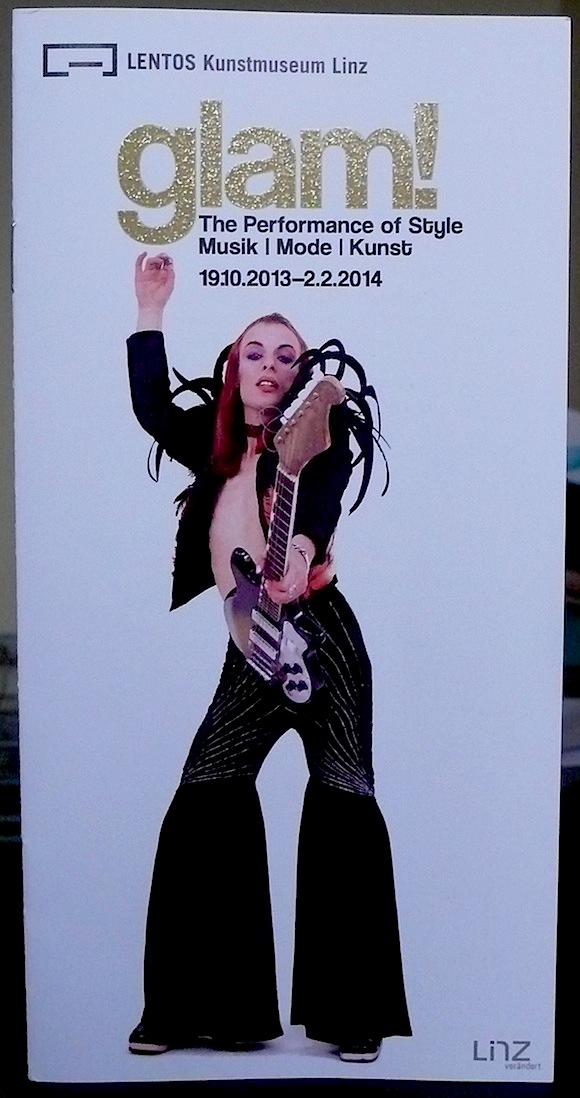
//Front cover of booklet for the Linz show features this 1973 Karl Stoecker portrait of Brian Eno in Roxy Music stage costume designed by Carol McNicholl//
Glam! The Performance Of Style – the exhibition which locates early 70s glam rock in the context of fine art and the interplay between “high” and mass culture – is opening at the Lentos Kunstmuseum in Linz, Austria later this month.
I was a consultant to Glam!’s curator Darren Pih of Tate Liverpool, where the show opened at the beginning of this year before moving on to Frankfurt’s Schirn Kunsthalle for the summer.
Iggy Pop’s Wild Thing jacket: Not from Paradise Garage
A few years back I wrote a series of blogs about the so-called “Wild Thing” jacket worn by Iggy Pop on the cover of his and The Stooges’ album Raw Power; in 2008 I had brokered a deal for the jacket designers John and Molly Dove to reissue a t-shirt range – including a version bearing the Wild Thing’s panther head – via Topman.
Around that time I also hooked them up with the current owner of the jacket, US maverick pop culture entrepreneur and collector “Long Gone” John Mermis (who I’d met as far back as the mid-90s at his extraordinary Long Beach mansion).
Flocked + tiger-striped: The Paradise Garage Ford Mustang
Trevor Myles’ decision to incorporate a flocked and tiger-striped 1966 Ford Mustang as part of his retail space Paradise Garage naturally attracted a lot of attention during the brief existence of this unusual fashion outlet at 430 King’s Road in Chelsea’s World’s End in 1971.
Exclusive: Inside Paradise Garage at 430 King’s Road with Electric Colour Company, 1971
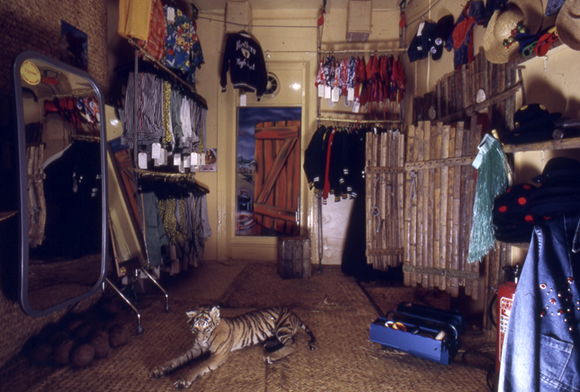
//Interior, 430 King's Road, Chelsea, May 1971. Note coconut matting, shack-style dressing room doors, trompe de l'oeil gate painted on stockroom door... and fake tiger. Photography: David Parkinson.//
I first wrote about Electric Colour Company – the design studio formed in the East End by four fine art students in the late 60s – in The Look and then in more detail here.
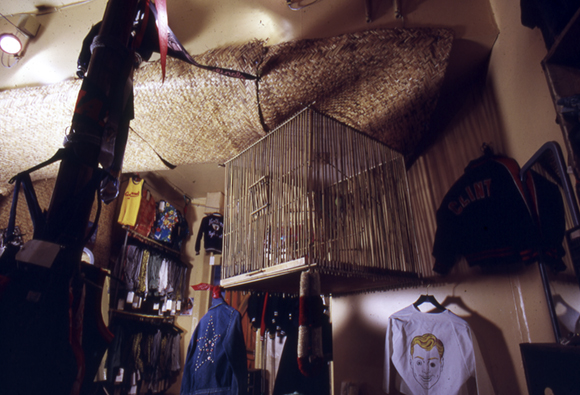
//Amid the singlets, printed sweatshirts and appliqued denim, a bamboo cage housed birds of paradise, suspended from the matting covered ceiling.//
In my view, ECC deserves much greater recognition for executing some very clever work in the field of retail design and interiors in the period 1969-1973.
“I’m very earthy”: Trevor Myles and his Paradise Garage in Harpers & Queen 1971
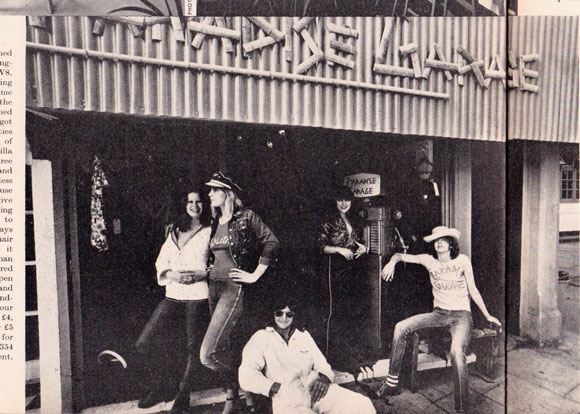
//Outside 430 King's Road (from left) summer 1971: Unknown, assistant Lisa Petersen, manager Roly Poltock, designer Diana Crawshaw and founder Trevor Myles. Photograph: Julian Allason.//
Harpers & Queen ran this photograph of the short-lived but significant World’s End boutique Paradise Garage in the Shopping Bazaar section of the September 1971 issue.

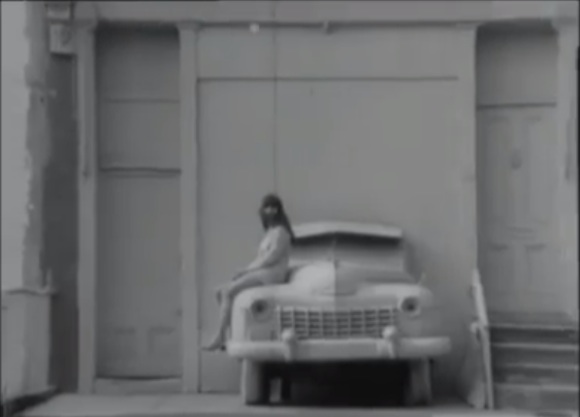
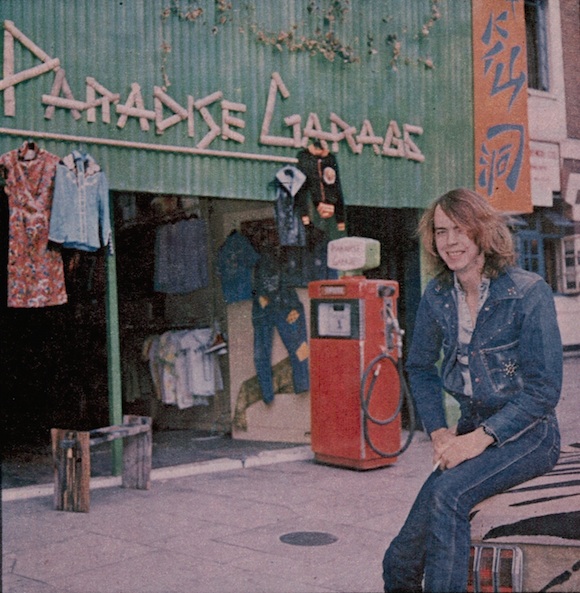
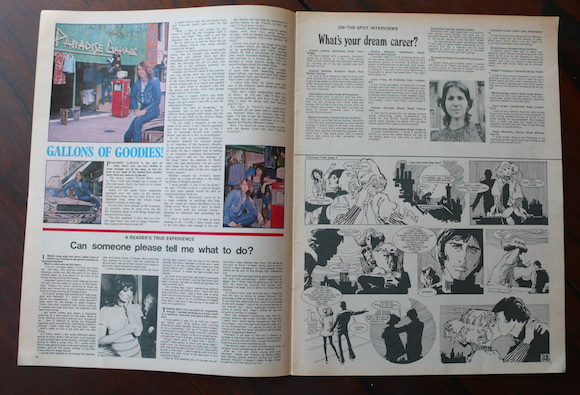
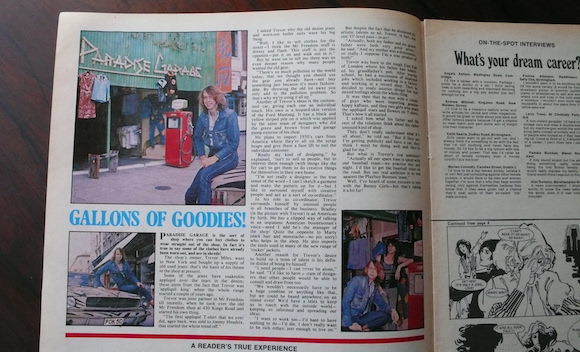
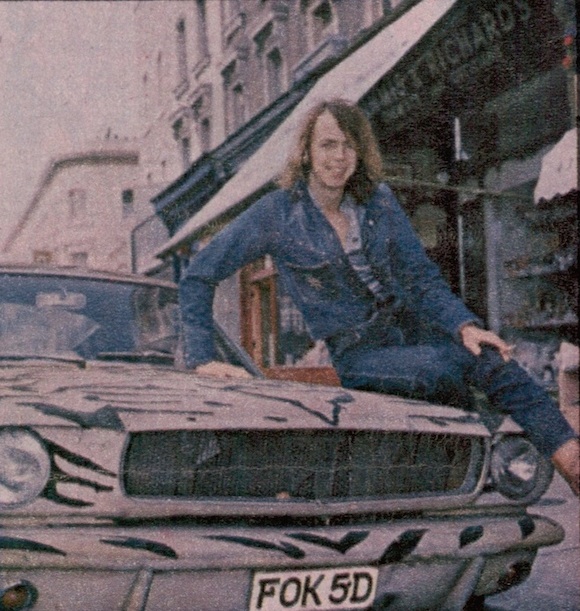
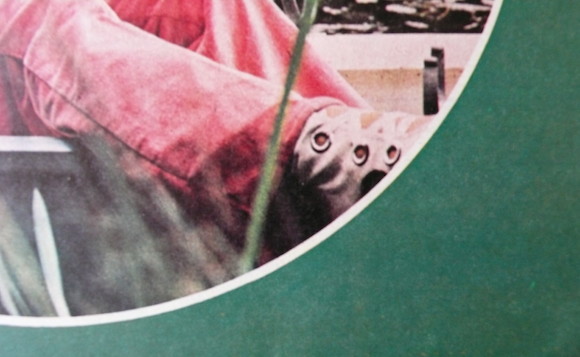
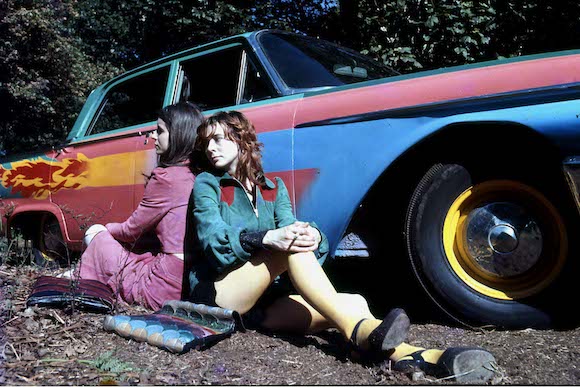
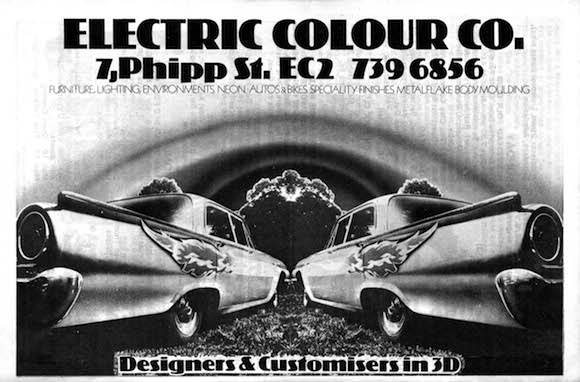
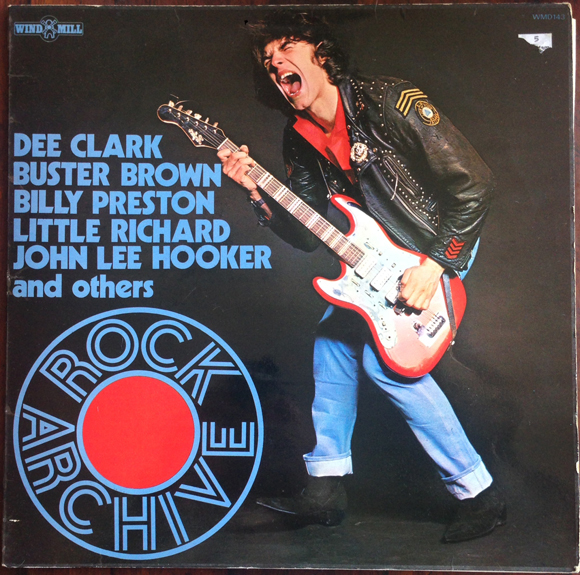
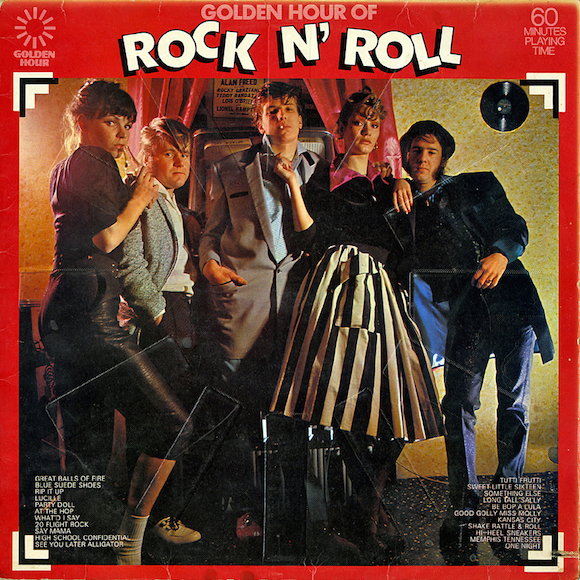
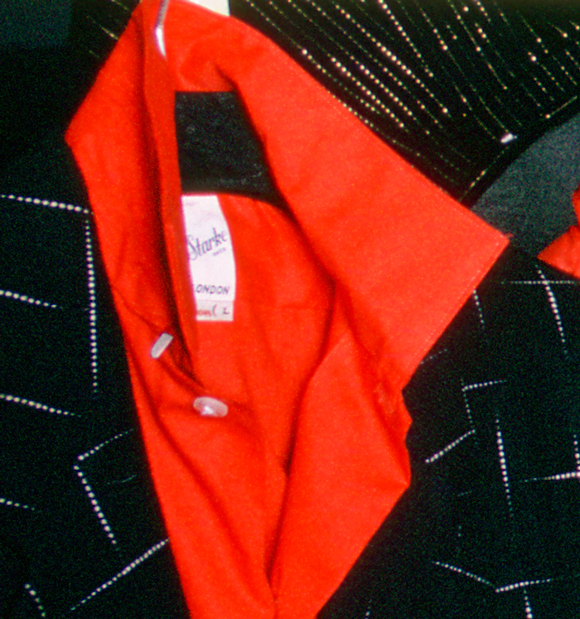
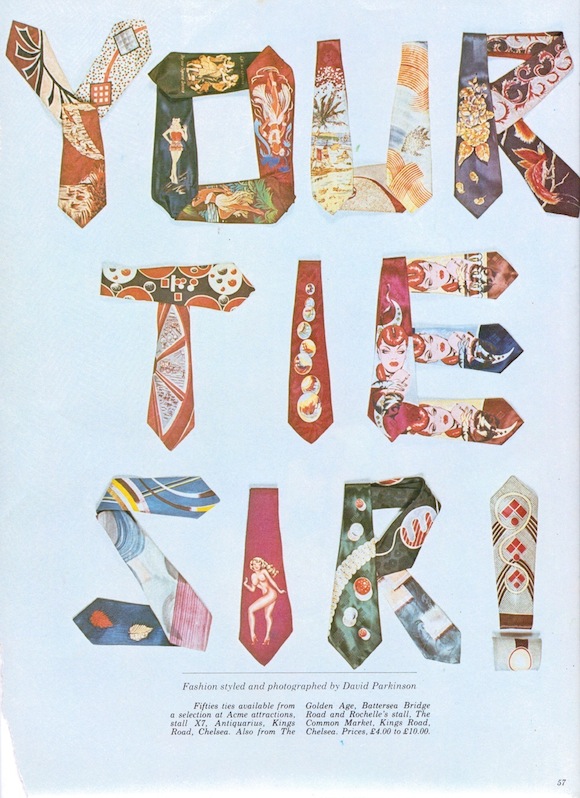
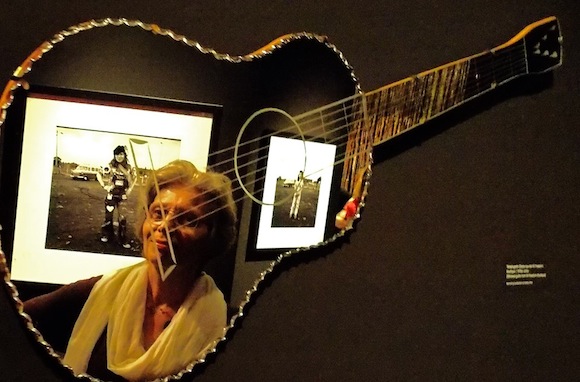
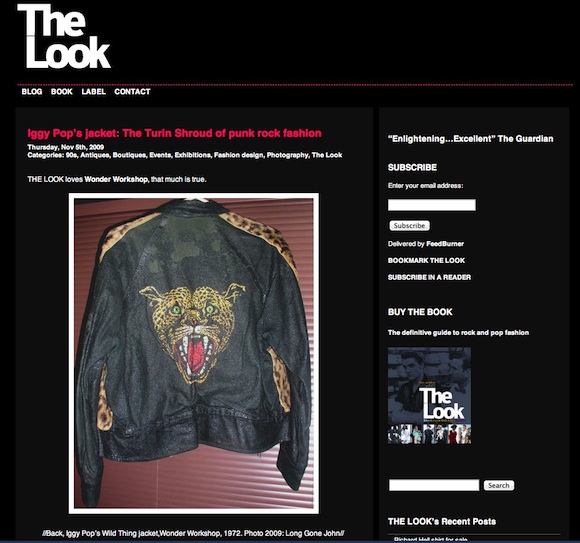
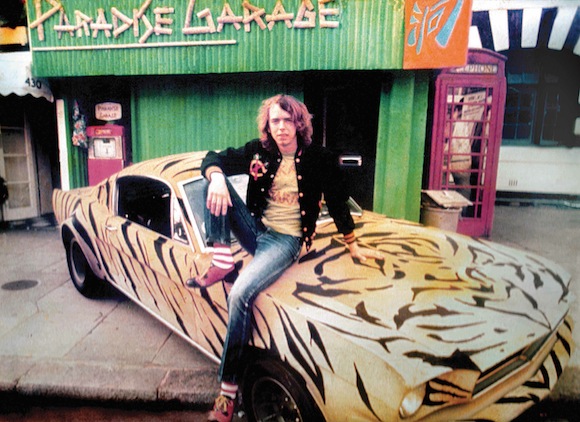
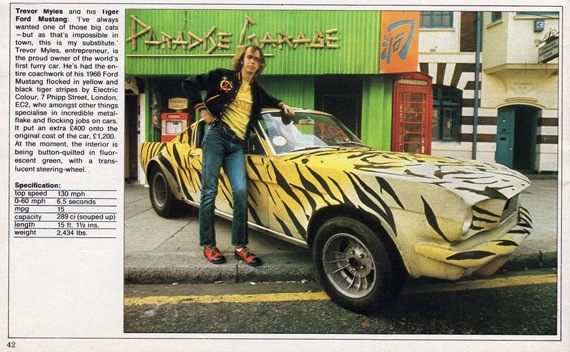
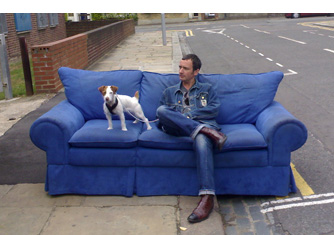






Recent Comments